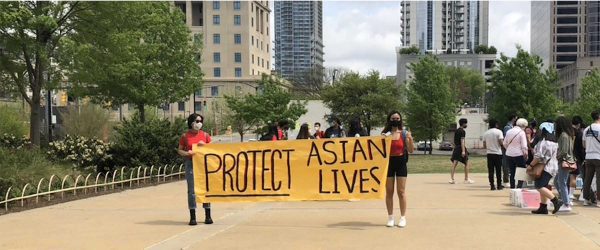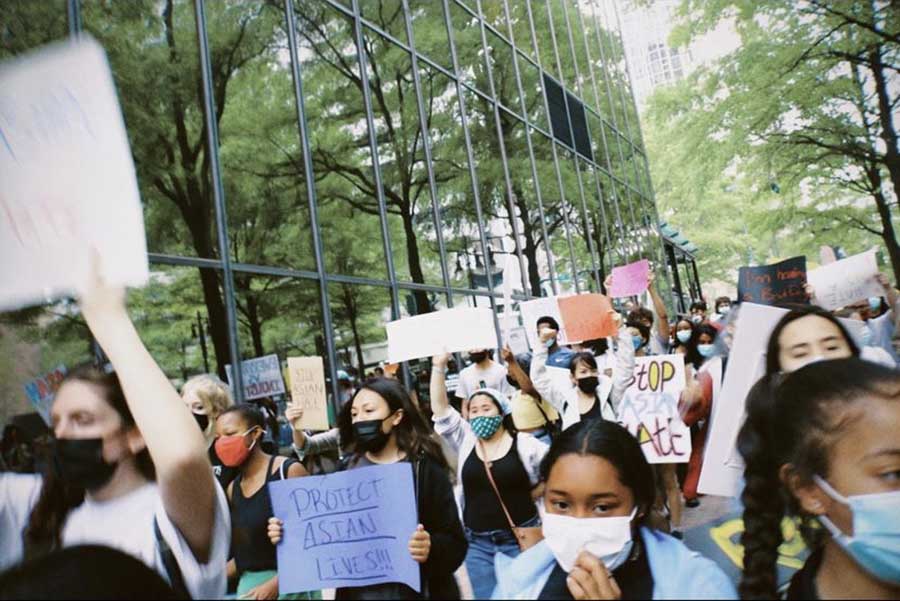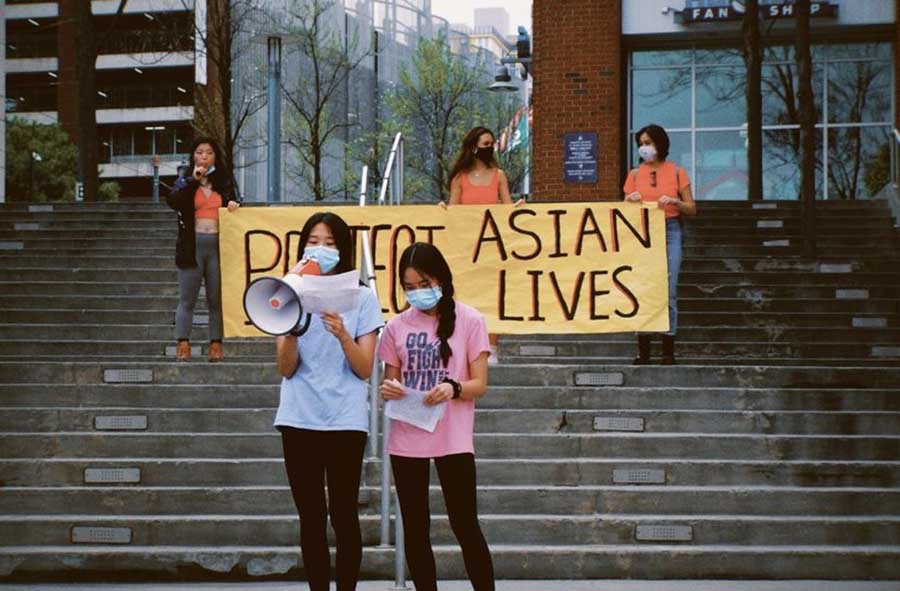Educating our nation: Resources for Asian American and Pacific Islander Heritage Month

On Saturday, April 10, UNC Charlotte students, faculty, staff and leaders marched to protect Asian lives. Now, as we celebrate Asian American and Pacific Islander (AAPI) Heritage Month, the UNC Charlotte community must increase its knowledge and understanding regarding AAPI experiences and issues, so it can offer continued support to Asian American and Pacific Islanders on and off campus.
To begin, AAPI Heritage Month provides Asian Americans and Pacific Islanders — an enormously diverse group — with the opportunity to express, celebrate, preserve, and reconnect with their cultures, their histories, and their accomplishments; thus pushing back against the pressure to assimilate, while advocating for their place in the fight for racial justice.

According to Othelia Lee, Ph.D., a Social Work professor at UNC Charlotte, it is important to know the history of anti-Asian sentiments in the United States, especially in light of the COVID-19 pandemic.
The following information is adapted from Lee’s forthcoming article “To mask or to unmask, that is the question: Face masks and Anti-Asian violence during COVID-19,” co-written with Dr. H. Choi for the Journal of Human Rights and Social Work:
Anti-Asian sentiments in the United States began with labor exploitation, “Yellow Peril” and the misconception that “‘Chinese’ disease strains were more harmful than those carried by white people.” Culminating in the Chinese Exclusion Act of 1882, these sentiments carried over into the 20th century with Executive Order 9066, which forced Japanese Americans into internment camps. For many Asian Americans, these policies of exclusion loom as large as Jim Crow does for African Americans.
The Immigration and Naturalization Act of 1965 ended the Chinese Exclusion Act of 1882, but it helped perpetuate the “model minority” stereotype, or the idea that all Asian Americans, through hard work, achieve great academic and professional success. A tool used against the civil rights and social justice movements, Drs. Lee and Choi state that “Not only does [the myth] create a monolithic identity for Asian Americans and render their struggles invisible, but it also drives a wedge between them and other communities of color…”
An extension of this anti-Asian hate is anti-Asian violence, the frequency of which has increased exponentially during the COVID-19 pandemic.
 Communication Studies professor Min Jiang, Ph.D., urges all of us at UNC Charlotte to support Asian American and Pacific Islander voices and causes on campus. According to Jiang, we must give AAPI community members the space to “be an important voice to address their needs and concerns; serve our university’s diversity office and our university administration in an advisory capacity; and develop channels of communication between various minority caucuses within UNC Charlotte and with our surrounding community.”
Communication Studies professor Min Jiang, Ph.D., urges all of us at UNC Charlotte to support Asian American and Pacific Islander voices and causes on campus. According to Jiang, we must give AAPI community members the space to “be an important voice to address their needs and concerns; serve our university’s diversity office and our university administration in an advisory capacity; and develop channels of communication between various minority caucuses within UNC Charlotte and with our surrounding community.”
“A more systematic curricula and permanent structure,” she continues, “are needed to promote academic and community activities and exchanges focused on Asia and the AAPI community.”
Please keep the diversity within the Asian American and Pacific Islander community in mind as you educate yourselves.
Podcasts
Documentaries and Films
“Asian American History: PBS Documentary Series Asian American”
“American Revolutionary: The Evolution of Grace Lee Boggs”
Books
“Asian American History: A Very Short Introduction” by Madeline Y. Hsu
“Asian Pacific American Book List“ by Talk Story Together
“Book Recommendations” by Tales From Pacifika
“The Best We Could Do” by Thi Bui
“Heartbeat of Struggle: The Revolutionary Life of Yuri Kochiyama” by Diane C. Fujino
“The Latehomecomer: A Hmong Family Memoir” by Kao Kalia Yang
“Minor Feelings” by Cathy Park Hong
“The Making of Asian America” by Erika Lee
“The Sympathizer” by Viet Thanh Nguyen
Articles
“Anti-Asian Xenophobia and Asian American COVID-19 Disparities” by Thomas K. Le, Leah Cha, Hae-Ra Han and Winston Tseng
“Ignite Young Asian People Power: Resources for BLM movement” by the Asian American Organizing Project
“L.A. activists recall lessons of 1992 uprising in new efforts on Asian-Black relations” by Phoenix Tso
“Reframing Facemasks as Tools to Balance Individualism and Social Responsibility” by Othelia E. Lee
Organizations and other resources
SEAC Village and @seacvillage on Instagram
Asia-Focused Organizations in North Carolina by Carolina Asia Center
Bhutanese Community Association of Charlotte (BCAC)
Bunong Indigenous Community Association of Charlotte (BICA)
UNC Charlotte Campus Diversity Resources
Vietnamese Association of Charlotte (VAC)
Thank you to Dr. Min Jiang, Dr. Othelia Lee and Sun Bujri of the Southeast Asian Coalition for their time, expertise and contributions. Photographs were taken by the UNC Charlotte Asian Student Association and Dr. Cheryl Waites Spellman.